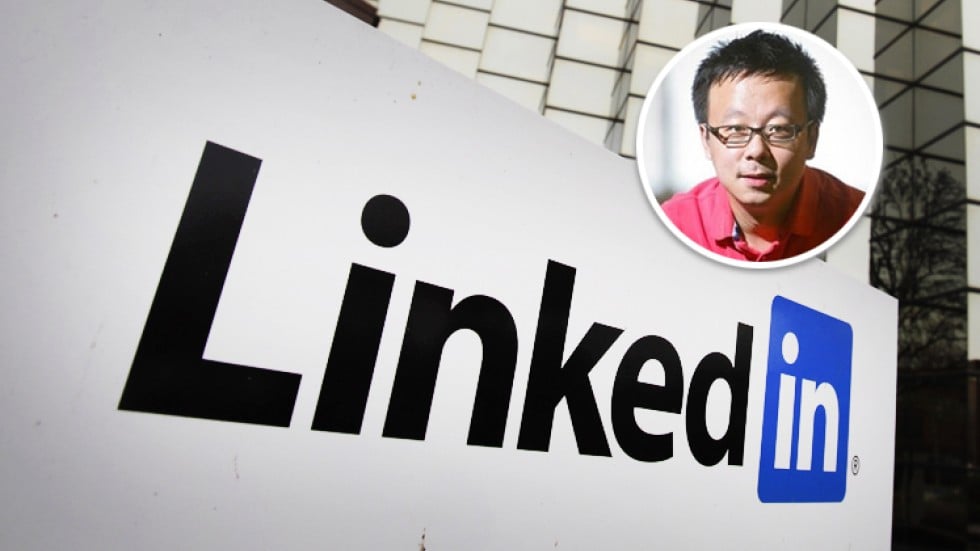By JAVIER C. HERNÁNDEZ and MELISSA EDDY

The Chinese Embassy in Berlin on Monday. German intelligence services said that more than 10,000 German citizens had been targeted by Chinese spies on LinkedIn.
BEIJING — German’s domestic intelligence agency has accused China of using LinkedIn to infiltrate the German government.
In a scathing investigation released on Sunday, the intelligence agency, the Office for the Protection of the Constitution, accused Beijing of using social media to target more than 10,000 citizens, including lawmakers and other government employees.
To win their trust, the agency said, Chinese agents posed as leaders of think tanks and headhunters, and offered all-expenses-paid trips to China and meetings with influential clients.
The German investigation added to anxieties in Western countries about Chinese efforts to infiltrate foreign governments and businesses, in an attempt to gain a competitive advantage, especially on economic and foreign policy issues.
The German investigation added to anxieties in Western countries about Chinese efforts to infiltrate foreign governments and businesses, in an attempt to gain a competitive advantage, especially on economic and foreign policy issues.
The United States has accused China of rampant economic espionage.
Australia is debating tougher laws to guard against foreign interference, amid reports that China is meddling in Australian universities and elections.
German officials said that Chinese agents had created fake profiles in hopes of “gleaning information and recruiting sources” in Germany.
German officials said that Chinese agents had created fake profiles in hopes of “gleaning information and recruiting sources” in Germany.
Chinese agents approached targets by saying they were interested in exchanging information or offering to establish contact for them with an expert on China, German officials said.

Hans-Georg Maassen, the president of the German intelligence agency, called the efforts “a broad attempt to infiltrate Parliaments, ministries and administrations.”
Adam M. Segal, an expert on cybersecurity and China at the Council on Foreign Relations, said the German investigation will add “more fuel to the fire of skepticism and suspicion about Chinese actions” in the West.
He said that China would probably continue to expand its digital espionage efforts despite criticism. “Given how sensitive the regime and Xi Jinping seems to be to any challenge domestically, they also want to try to control as much as they can internationally,” Mr. Segal said.
Adam M. Segal, an expert on cybersecurity and China at the Council on Foreign Relations, said the German investigation will add “more fuel to the fire of skepticism and suspicion about Chinese actions” in the West.
He said that China would probably continue to expand its digital espionage efforts despite criticism. “Given how sensitive the regime and Xi Jinping seems to be to any challenge domestically, they also want to try to control as much as they can internationally,” Mr. Segal said.
LinkedIn is one of few foreign social media companies operating in China, in part because it adheres closely to Chinese regulations and has a relatively warm relationship with the government.
Under the scheme described by German intelligence, Chinese agents used aliases like Eva Han on LinkedIn.
Under the scheme described by German intelligence, Chinese agents used aliases like Eva Han on LinkedIn.
They used photographs from fashion magazines as their profile pictures.
Several listed fake company names.
Once they established contact with German citizens, the Chinese agents intensified the attempted exchange, asking for a résumé and offering compensation for work on a project.
Once they established contact with German citizens, the Chinese agents intensified the attempted exchange, asking for a résumé and offering compensation for work on a project.
They invited Germans to China for conferences or meetings with “important clients” who never materialized.
They pressed the targets for sensitive information in exchange for money.
The German government has repeatedly warned in recent months that China is increasing its efforts to steal trade secrets and other sensitive information from European targets.
In July, the government said that Chinese agents were seeking information about foreign and economic policy.
In July, the government said that Chinese agents were seeking information about foreign and economic policy.
It said China had targeted lawmakers and employees of the European and German Parliaments, lobbyists, members of the military and representatives of foundations and think tanks.

Is he a spy? Probably.
